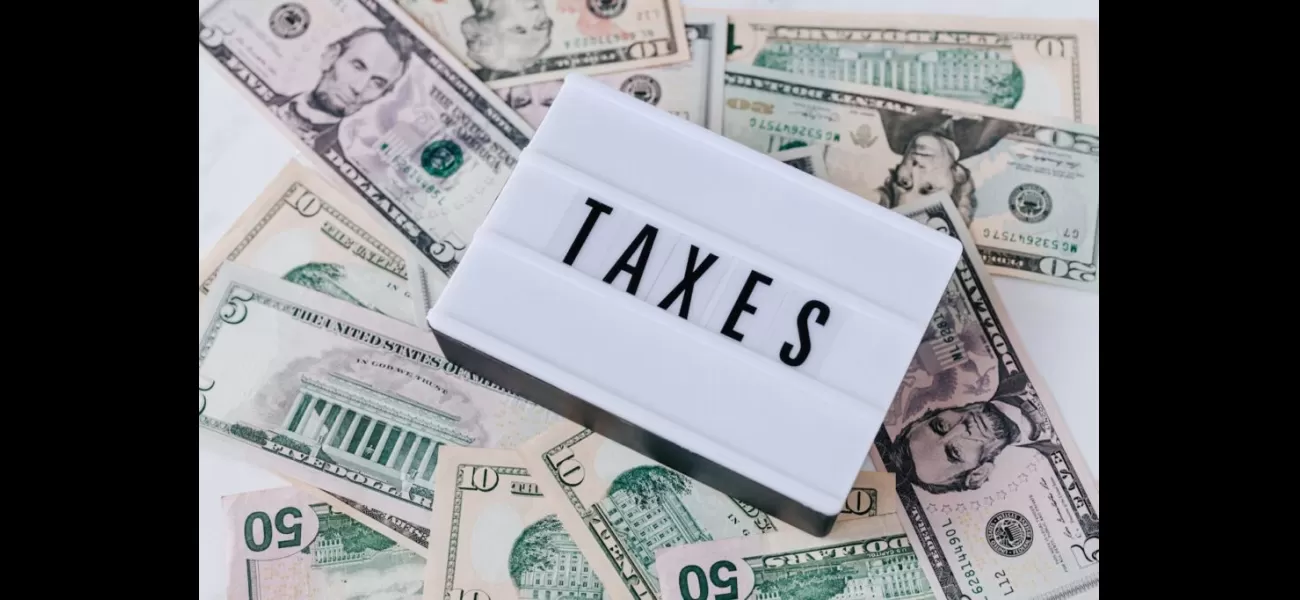Learn about the positives and negatives of receiving a tax refund or bill to better understand tax season.
Get help with your business taxes using these 3 guides.
April 19th 2024.

As March 2, 2015 rolled around, my firm in bustling Kansas City, Missouri was in full swing for tax season. It's a busy time for us, not just in my city, but all across the country. The days are long and the nights are even longer for my team and me. The one question that seems to be on every client's mind is, "Will I be getting a refund or will I owe Uncle Sam?"
Some may think that the ultimate goal is to receive a refund, but if you ask any reputable financial planning expert, they will tell you that giving the government an interest-free loan for a year is not a wise investment strategy. Surprising as it may seem, this is exactly what happens when you receive a refund. Your own money could have been in your hands throughout the year, earning interest, paying off debt, or simply sitting in your bank account.
The next question that usually follows is, "How much is my refund?" The larger the refund, the more you could have been earning throughout the year. So, let's take a step back and consider this: is it actually better to owe the IRS than to receive a refund? The answer to that question depends on your ability to pay when the time comes. If you owe, the deadline to pay is April 15. Failing to do so could result in penalties and interest.
In the end, it all comes down to your financial discipline and goals. If you have a good handle on your finances, then your objective should be to break even or have a small balance due. However, if financial discipline is not your strong suit, then a refund may actually work in your favor.
To help guide you in making this decision, here are three tips to consider:
1. Determine whether your goal is to receive a refund or to break even.
2. Consult with a tax professional to figure out the best steps to take in order to achieve your desired outcome. This could include adjusting your W-4, changing your business structure, or timing your income and expenses.
3. If you do receive a refund, make sure you have a plan in place to use it wisely. If you are able to break even and have more money throughout the year, consider using the extra funds to improve your overall financial position.
Whichever route you choose, it's important to stick to your plan, follow through with it, and remember that this is your hard-earned money. Keep in mind that a refund is not always a pot of gold waiting for you at the end of a rainbow. So, don't be fooled by the allure of a large refund and make sure you make sound financial decisions this tax season. Think of it as the advice a wise uncle would give you.
Marquita Miller, the founder and CEO of Five Star Tax and Business Solutions, knows firsthand the importance of making wise financial decisions during tax season. As we've seen with the recent chaos at a Houston IRS office, it's crucial to stay on top of things and avoid any unnecessary complications. So, take the time to plan ahead and make the best choices for your financial future.
Some may think that the ultimate goal is to receive a refund, but if you ask any reputable financial planning expert, they will tell you that giving the government an interest-free loan for a year is not a wise investment strategy. Surprising as it may seem, this is exactly what happens when you receive a refund. Your own money could have been in your hands throughout the year, earning interest, paying off debt, or simply sitting in your bank account.
The next question that usually follows is, "How much is my refund?" The larger the refund, the more you could have been earning throughout the year. So, let's take a step back and consider this: is it actually better to owe the IRS than to receive a refund? The answer to that question depends on your ability to pay when the time comes. If you owe, the deadline to pay is April 15. Failing to do so could result in penalties and interest.
In the end, it all comes down to your financial discipline and goals. If you have a good handle on your finances, then your objective should be to break even or have a small balance due. However, if financial discipline is not your strong suit, then a refund may actually work in your favor.
To help guide you in making this decision, here are three tips to consider:
1. Determine whether your goal is to receive a refund or to break even.
2. Consult with a tax professional to figure out the best steps to take in order to achieve your desired outcome. This could include adjusting your W-4, changing your business structure, or timing your income and expenses.
3. If you do receive a refund, make sure you have a plan in place to use it wisely. If you are able to break even and have more money throughout the year, consider using the extra funds to improve your overall financial position.
Whichever route you choose, it's important to stick to your plan, follow through with it, and remember that this is your hard-earned money. Keep in mind that a refund is not always a pot of gold waiting for you at the end of a rainbow. So, don't be fooled by the allure of a large refund and make sure you make sound financial decisions this tax season. Think of it as the advice a wise uncle would give you.
Marquita Miller, the founder and CEO of Five Star Tax and Business Solutions, knows firsthand the importance of making wise financial decisions during tax season. As we've seen with the recent chaos at a Houston IRS office, it's crucial to stay on top of things and avoid any unnecessary complications. So, take the time to plan ahead and make the best choices for your financial future.
[This article has been trending online recently and has been generated with AI. Your feed is customized.]
[Generative AI is experimental.]
0
0
Submit Comment





